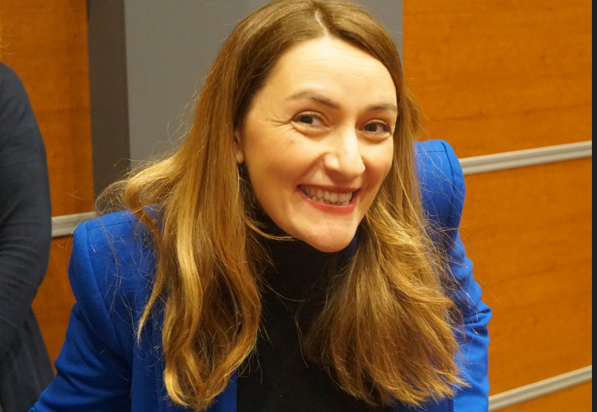Serap Yelkenci: 'The One Thing That Has Remained Unchanged from My Childhood to Today is My Sense of 'Curiosity'

Our Philosophy graduate from 2012, Serap Yelkenci, is currently in the spotlight with her role as a Social Impact Advisor / Co-Founder of the 'Single Mothers Association'. Serap Yelkenci summarized her background and answered our questions.
In her own words, Serap Yelkenci:
"I was born in Kadıköy in 1987. I am the eldest of three daughters from a family in Çayeli, Rize. I am a mother of twins, a 10-year-old daughter and a son. I am a single mother.
The one thing that has remained unchanged from my childhood to today is my sense of 'curiosity'. This 'curiosity' is not about everyday curiosities. It was this sense of curiosity that led me to study Philosophy at university and write a thesis related to technology. This same curiosity also led me to work in the technology sector after graduation. I can say that I specialized in 'communication,' or how 'produced technology' should be conveyed to the recipient, working in various non-technical departments within the technology sector for 15 years. I recently left my white-collar job and now run a company focused on rhetorical communication, continuing to provide communication and technology consulting. I also conduct workshops to develop critical thinking skills in the business world. I am the founder and president of the Single Mothers Association. In summary, I can say I am on a journey of being human."
Can you tell us about your experience at Yeditepe University?
"I would like to answer by separating my academic experience from my social interactions. Academically, I can say that the Philosophy department, which I studied, has one of the best curricula in Turkey. Socially, when I look at my life today, I see that my closest friends are those I made during university. Because I was very active in clubs, the friendships and experiences from the clubs have had a profound impact on my life."
What differences and advantages has being a Yeditepe University graduate brought to your career?
"As a Philosophy graduate, I wrote a thesis in the field of 'technology'. The support from my thesis advisors in this area had a significant impact on my career in the private sector. Although Philosophy and Technology might seem more easily combined today, 14 years ago, it was quite unusual, and doing so drew attention in my professional life. I have been working in the technology sector for 15 years, and the different perspective, creativity, and problem-solving skills I brought to my work are skills I gained at university."
What do you think was the significant turning point in your career?
"The turning point in my 15-year career as a white-collar worker in the private sector was when I said 'Enough' to the private sector. Of course, it took 15 years of experience to have the courage to say this. It was at the moment when I realized that the real goal is not to climb the highest ladder, or even to climb the ladder at all, that I could say 'enough.' This is a cry that many white-collar workers want to make but cannot risk for very valid reasons. A turning point, as you describe it, is essentially turning away from the path you were on, seeing the world from a different perspective, and thinking differently than you did before."
What advice would you give to our students and recent graduates about their career journeys?
"Life is a very integrated thing, and I believe that distinctions like career life, personal life, and work life are outdated concepts. Therefore, I will answer your question in terms of life journeys. First and foremost, I value experiential knowledge the most. Of course, it's not possible for a person to experience everything in life, but each experience is unique and valuable. Science today tells us that objective reality in the external world depends on the perceiver. We all see life from different angles, making each person's experiences extremely valuable, so they should not be afraid to experience their dreams. There is always a gain in experience, even when things don't go well, the gain is called experience. I do not like the cliché 'do what you love.' People may not know what they love even at 50. It's a personal development rumor. Instead, I prefer to say, 'Whatever job you are doing, find something to love in that job. If you can't find it, make the job you do something you will love.'"
What message would you like to share with our newsletter readers on the 100th anniversary of our Republic?
"I sincerely believe that the second century will be an 'internalized Republic Century.' We will live the Republic in this century. I am very hopeful that we will experience processes of unity and togetherness, and being of one heart. Although there are significant global problems, I believe that the sense of unity and togetherness we will experience in our second century will greatly contribute to overcoming these problems, and even help resolve them globally. We have not yet fully fulfilled our responsibilities or raised our country to the level of contemporary civilization. In summary, we must remember our responsibilities."